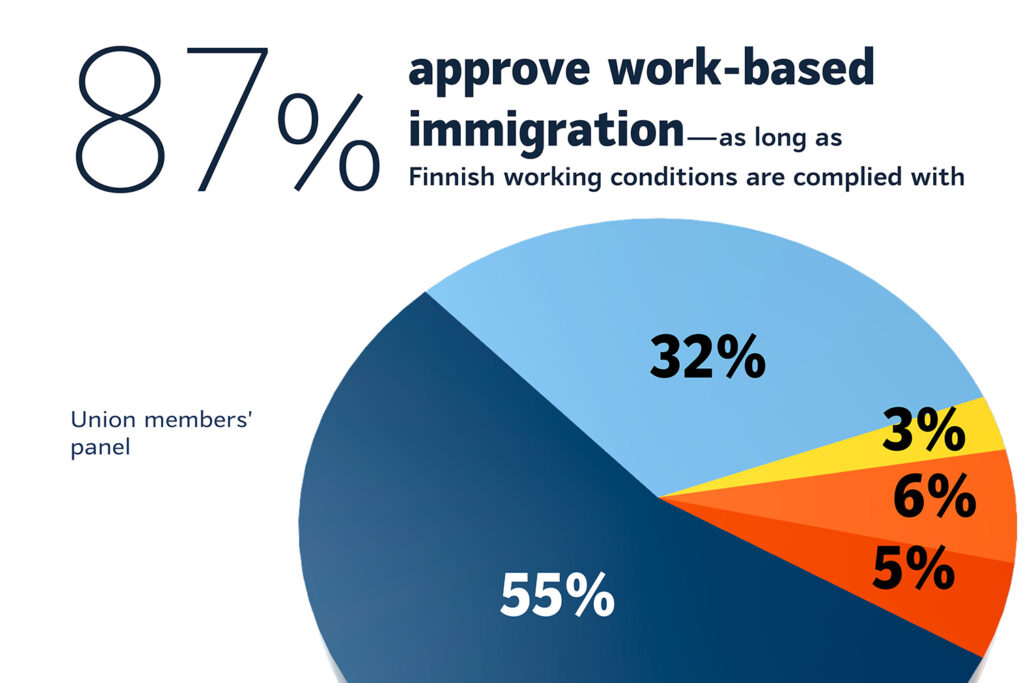Role of the Industrial Union likely to grow
The importance of collective bargaining will not disappear in Finland. Notwithstanding the fact that the Orpo-Purra Government strongly favours employers when it comes to the labour market rules and structures.
– In Finnish society, the importance of collective bargaining is still central. Our labour law still stipulates very little about minimum conditions. These are decided in the generally binding collective agreements, says Antti Malste, the Head of External Communications in the Industrial Union.
The fact that legislation does not define a minimum salary or terms of employment, makes collective bargaining important for all wage and salary earners. Many of the collective agreements are generally binding. These set the minimum terms of employment that every company in the branch of industry must follow.
Now, the Government advocates a so-called export-led wage model. They want to stipulate that the National Conciliator cannot propose, for any sector, pay rises that exceed the ones reached in the export sector.
The task of the National Conciliator is to assist collective bargaining by conciliating labour disputes when outside help is needed to strike a deal. The arbitration system is based on the Act on Mediation in Labour Disputes.
In Finnish society, the importance of collective bargaining is still central.
Traditionally, the negotiating parties go to meet the National Conciliator only when negotiations have reached an impasse.
– Should the law be accepted, the importance of the National Conciliator will decrease dramatically. Conversely, the role of the Industrial Union will increase considerably. The export-led industry, on the basis of the law, will set the ceiling for all pay rises, Malste says.
Another consequence of the new law can be an increase in the number of strikes.
– In the future, employers will have no interest in resolving disputes with employees, but opt to take the case to the National Conciliator. He or she offers at most what has been reached in the export industry agreements. Only by striking, can one get more than that offered by the office of the National Conciliator.
Politics or negotiations?
The Orpo-Purra right-wing Government has become involved to an exceptional extent in the workings of the labour market. This is unusual in Finland, where the trade unions and employers’ associations have had a wide measure of autonomy to negotiate agreements.
With this new policy, the government has, in fact, made itself a party in labour market issues. This development is not right.
– Labour market issues are becoming politicised. These issues are being put before parliament more and more, which is not a good thing. This diminishes the predictability of the labour market and weakens the possibilities of employees and employers agreeing on matters concerning the issues of their daily life, says Antti Malste, the Head of External Communications in the Industrial Union.
Workers should not take it as given, that future governments will essentially overturn the decisions made now. Right-wing parties trust and believe that even in the future, governments will include men and women who will guarantee that labour legislation will not change in favour of employees, Malste says.
– This means that employees should take better care to ensure that their voice is also strongly made heard in parliament.




